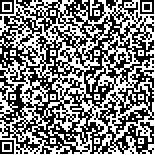| 引用本文: | 彭诗元,王艳,王振龙,吕晓辉,田莽,孙航.经尿道膀胱肿瘤及前列腺同期电切即刻化学灌注安全性及疗效分析[J].中国现代应用药学,2022,39(22):2995-2999. |
| PENG Shiyuan,WANG Yan,WANG Zhenlong,LYU Xiaohui,TIAN Mang,SUN Hang.Safety and Therapeutic Effects Analysis of Immediate Chemical Perfusion in Transurethral Bladder Tumor Resection and Transurethral Resection of Prostate[J].Chin J Mod Appl Pharm(中国现代应用药学),2022,39(22):2995-2999. |
|
| |
|
|
| 本文已被:浏览 1395次 下载 844次 |

码上扫一扫! |
|
|
| 经尿道膀胱肿瘤及前列腺同期电切即刻化学灌注安全性及疗效分析 |
|
彭诗元1, 王艳2, 王振龙3, 吕晓辉2, 田莽2, 孙航2
|
|
1.解放军第九八四医院急诊科, 北京 102200;2.解放军第九八七医院泌尿外科, 陕西 宝鸡 721000;3.西安交通大学第二附属医院泌尿外科, 西安 710004
|
|
| 摘要: |
| 目的 研究非肌层浸润性膀胱肿瘤(non muscle-invasive bladder cancer,NMIBC)合并前列腺增生(benign prostatic hypertrophy,BPH)患者同期行经尿道膀胱肿瘤电切(transurethral bladder tumor resection,TURBT)及经尿道前列腺电切(transurethral resection of prostate,TURP)术后即刻灌注盐酸吡柔比星(pirarubicin,THP)对患者下尿路症状(lower urinary tract symptoms,LUTS)及肿瘤复发率的影响。方法 收集NMIBC合并BPH导致下尿路梗阻的患者69例,随机分配为THP高浓度组(n=35)和低浓度组(n=34),术前记录国际前列腺症状(international prostate symptom,IPSS)评分、刺激评分、梗阻评分、生活质量(quality of life,QOL)评分、最大尿流率(Qmax)、残余尿(post-voiding residual,PVR)、前列腺体积、前列腺特异性抗原及膀胱肿瘤体积。高浓度组手术结束6 h内灌注THP 30mg/5%葡萄糖注射液(glucose solution,GS) 30 mL,低浓度组灌注THP 30 mg/5%GS 50 mL。术后每周记录2组术前各项评分指标、Qmax、PVR及膀胱疼痛直观模拟分级评分(visual analogue scale,VAS)共4周。2组患者均定期进行膀胱镜检查以明确肿瘤是否复发。结果 2组术前及手术各项指标比较均无显著性差异。在术后第1~4周,刺激评分、梗阻评分、IPSS评分、QOL评分、PVR及VAS评分均逐渐下降,Qmax逐渐升高。在第1~3周时高浓度组刺激评分及IPSS评分显著高于低浓度组(P均<0.05),在第4周时2组间无显著差异。在术后第1~2周时高浓度组VAS评分显著高于低浓度组(P<0.01),在第3~4周时2组间无显著差异。在第4周时组间各指标比较均无显著差异。2组随访中位时间均为30个月,随访期内高浓度组肿瘤复发3例(8.6%),低浓度组复发4例(11.8%),2组复发率无显著性差异。结论 同期行TURBT+TURP并术后即刻膀胱灌注THP 30 mg/5%GS 30 mL较30 mg/5%GS 50 mL短期内尿路刺激症状加重,但在术后第4周时症状可自行缓解,随访中未发现2组肿瘤复发率存在差异。 |
| 关键词: 非肌层浸润性膀胱肿瘤|经尿道膀胱肿瘤电切术|经尿道前列腺电切术|吡柔比星|膀胱灌注 |
| DOI:10.13748/j.cnki.issn1007-7693.2022.22.014 |
| 分类号:R969.4 |
| 基金项目: |
|
| Safety and Therapeutic Effects Analysis of Immediate Chemical Perfusion in Transurethral Bladder Tumor Resection and Transurethral Resection of Prostate |
|
PENG Shiyuan1, WANG Yan2, WANG Zhenlong3, LYU Xiaohui2, TIAN Mang2, SUN Hang2
|
|
1.Department of Emergency, No. 984 Hospital of PLA, Beijing 102200, China;2.Department of Urology, No. 987 Hospital of PLA, Baoji 721000, China;3.Department of Urology, Second Affiliated Hospital of Xi'an Jiaotong University, Xi'an 710004, China
|
| Abstract: |
| OBJECTIVE To study the affections of lower urinary tract symptoms and tumor recurrent rate of pirarubicin pirarubicin(THP) intravesical instillation after simultaneous transurethral bladder tumor resection(TURBT) and transurethral resection of prostate(TURP) on non muscle-invasive bladder cancer(NMIBC) and benign prostatic hyperplasia(BPH) patients. METHODS Totally 69 patients with NMIBC and BPH caused lower urinary tract obstruction were recruited, and randomly divided into high concentration THP group(n=35) and low concentration THP group(n=34). The scores of international prostate symptom score(IPSS), stimulation score, obstruction score, quality of life(QOL), maximum urinary flow rate(Qmax), post-voiding residual(PVR), prostate volume, prostate specific antigen, volume of bladder cancer were recorded preoperatively. In the high concentration group, THP 30mg/5% glucose-solution(GS) 30mL was perfused within 6 h after operation, while in the low concentration group, THP 30mg/5% GS 50mL was perfused. Each preoperative scoring index, Qmax, PVR and visual analogue scale(VAS) of bladder pain were recorded every week for 4 weeks. Cystoscopy was performed regularly in the both groups to found recur of cancer. RESULTS No statistically significant differences of baseline and surgical indicators were found between the two groups. During the first 4 weeks post-operation, the scores of irritation, obstruction, IPSS, QOL, PVR and VAS declined, while Qmax increased. The stimulation score and IPSS score of the high concentration group were significantly higher than those of the low concentration group at week 1-3(P all <0.05), and there was no significant difference between the two groups at week 4. The VAS score of the high concentration group was significantly higher than that of the low concentration group in 1-2 weeks after operation(P<0.01), and there was no significant difference between the two groups in 3-4 weeks. At the 4th week, there was no significant difference in all indicators between the groups. The median follow-up time of the two groups was 30 months. During the follow-up period, there were 3 cases of tumor recurrence in the high concentration group(8.6%) and 4 cases of tumor recurrence in the low concentration group(11.8%). There was no significant difference in the recurrence rate between the two groups. CONCLUSION Early THP instillation at 30mg/5%GS 30mL causes more serious urinary tract irritation symptoms than 30mg/5%GS 50mL in patients in a few weeks followed by simultaneous TURBT and TURP, but the symptoms can be relieved in the 4th week postoperatively. No difference is found in the recurrence rate between the two groups during follow-up. |
| Key words: non muscle-invasive bladder cancer|transurethral bladder tumor resection(TURBT)|transurethral resection of prostate|pirarubicin|bladder instillation |
|
|
|
|
